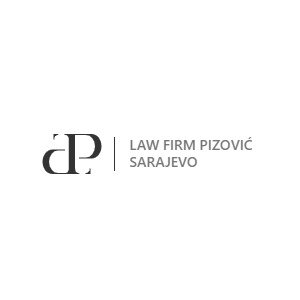Best Discrimination Lawyers in Sarajevo
Share your needs with us, get contacted by law firms.
Free. Takes 2 min.
List of the best lawyers in Sarajevo, Bosnia and Herzegovina
About Discrimination Law in Sarajevo, Bosnia and Herzegovina
Discrimination law in Sarajevo, Bosnia and Herzegovina, primarily aims to promote equality and protect individuals and groups from unfair treatment based on characteristics such as ethnicity, gender, age, disability, religion, and sexual orientation. The legal framework is designed to address discrimination in various contexts, including employment, education, housing, and access to public services. The Constitution of Bosnia and Herzegovina, along with national laws like the Law on the Prohibition of Discrimination, form the cornerstone of anti-discrimination efforts in Sarajevo and beyond. These laws are vital in fostering an inclusive society where all individuals can exercise their rights equally without fear of prejudice.
Why You May Need a Lawyer
There are several situations where individuals in Sarajevo may require legal help in cases of discrimination. These include encountering workplace discrimination, experiencing unequal treatment in a public setting, facing barriers in accessing education or healthcare due to discriminatory practices, or needing assistance in filing a formal complaint against an individual or organization. A lawyer experienced in discrimination law can provide invaluable guidance, help gather necessary evidence, represent individuals in court or mediation, and ensure that their client's rights are protected throughout the legal process.
Local Laws Overview
The Law on the Prohibition of Discrimination is the primary legislative tool used in Sarajevo to combat discrimination. This law prohibits any form of discrimination, direct or indirect, based on a wide range of protected characteristics. The law extends to both public and private sectors, ensuring comprehensive protection. The Human Rights Ombudsman of Bosnia and Herzegovina plays a crucial role in monitoring the enforcement of anti-discrimination laws and addressing complaints. Employers and service providers are obligated to implement policies that prevent discrimination, and violations can result in fines and other penalties.
Frequently Asked Questions
What constitutes discrimination under local law?
Discrimination is considered any unequal treatment of individuals based on characteristics such as ethnicity, gender, age, disability, or others specified by law, in both direct and indirect forms.
Can I file a complaint anonymously?
While complaints can be made anonymously, it might limit the capacity of the authorities to fully investigate and address the issue. It is often better to provide personal details for a thorough investigation.
How do I prove discrimination occurred?
Evidence can include witness testimonies, documentation of policies or communications that demonstrate discriminatory intent, and any pattern of behavior from the accused that shows a bias against protected groups.
What is the role of the Human Rights Ombudsman in cases of discrimination?
The Ombudsman investigates complaints related to discrimination, provides recommendations, and works to ensure enforcement of anti-discrimination measures.
Are there any penalties for making false discrimination claims?
Yes, making knowingly false claims can result in legal consequences, including potential fines or other penalties, depending on the severity of the situation.
Can I receive compensation if I win a discrimination case?
Yes, victims of discrimination may be entitled to compensation for damages, including emotional distress and financial losses resulting from discriminatory practices.
What should I do if I'm discriminated against at work?
You should document the incidents, report them to your employer’s HR department, and consider consulting a lawyer or the Human Rights Ombudsman for further actions.
Do discrimination laws apply to both public and private sectors?
Yes, the laws apply across both sectors, ensuring that individuals are protected comprehensive in all areas of public life and business activities.
Is mediation an option in discrimination cases?
Mediation can be a viable option in some cases as it offers a less adversarial process than a court trial, aiming for a mutually agreeable solution.
What should I expect during the legal process in a discrimination case?
The process can include filing a complaint, presenting evidence, possibly engaging in mediation or negotiations, and potentially going to trial if a settlement is not reached.
Additional Resources
Several resources are available for individuals in Sarajevo seeking legal advice on discrimination. The Human Rights Ombudsman of Bosnia and Herzegovina offers assistance and guidance. Non-governmental organizations (NGOs) such as the Sarajevo Open Centre and Rights for All provide support and advocacy for those facing discrimination. Additionally, legal aid societies and law clinics can offer free or low-cost legal assistance to those who qualify.
Next Steps
If you believe you are facing discrimination, start by documenting all relevant incidents and gather evidence that supports your claim. It is important to reach out to a qualified lawyer who specializes in discrimination law to understand your rights and the possible courses of action. Consulting the Human Rights Ombudsman or a relevant NGO can also provide guidance and assistance in navigating the legal system. Consider your options carefully and proceed with formal complaints if necessary, using professional guidance to ensure the best possible outcome.
Lawzana helps you find the best lawyers and law firms in Sarajevo through a curated and pre-screened list of qualified legal professionals. Our platform offers rankings and detailed profiles of attorneys and law firms, allowing you to compare based on practice areas, including Discrimination, experience, and client feedback.
Each profile includes a description of the firm's areas of practice, client reviews, team members and partners, year of establishment, spoken languages, office locations, contact information, social media presence, and any published articles or resources. Most firms on our platform speak English and are experienced in both local and international legal matters.
Get a quote from top-rated law firms in Sarajevo, Bosnia and Herzegovina — quickly, securely, and without unnecessary hassle.
Disclaimer:
The information provided on this page is for general informational purposes only and does not constitute legal advice. While we strive to ensure the accuracy and relevance of the content, legal information may change over time, and interpretations of the law can vary. You should always consult with a qualified legal professional for advice specific to your situation.
We disclaim all liability for actions taken or not taken based on the content of this page. If you believe any information is incorrect or outdated, please contact us, and we will review and update it where appropriate.










